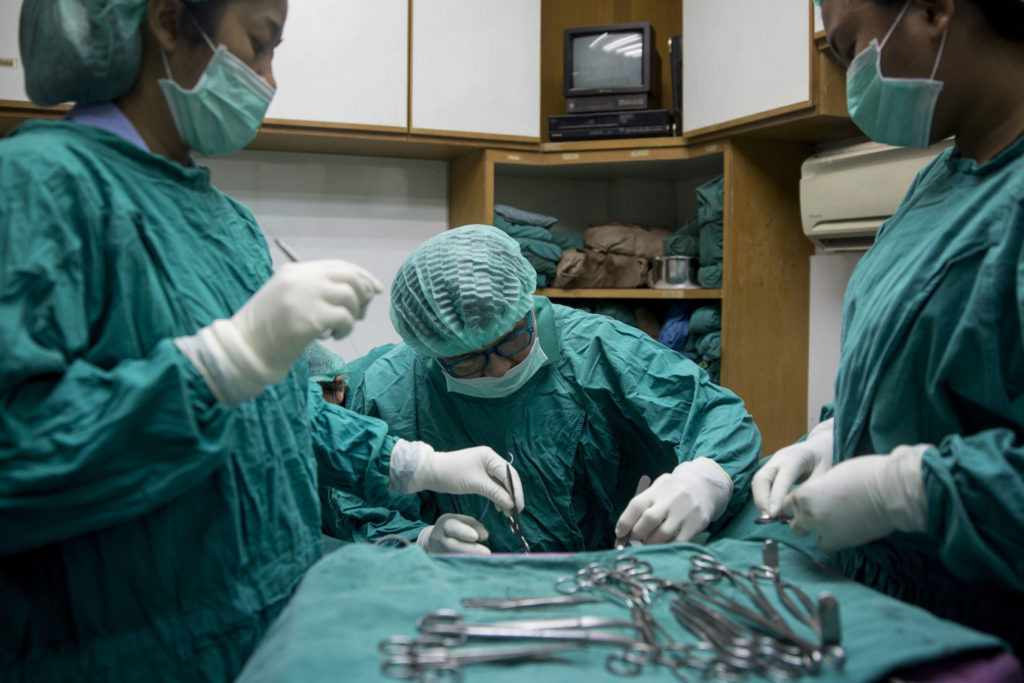How a new funding approach will bridge gaps in kidney care
The CMS IOTA model has significant potential to transform transplant collaboration in community nephrology.

As a physician assistant with experience in kidney transplantation and now working again in community nephrology, I’ve seen how disconnected the transplant world can feel from everyday kidney care.
We’re all working toward the same goal — helping patients with kidney failure live longer, healthier lives — but the system hasn’t always made it easy for transplant centers and local nephrologists to collaborate effectively. That’s starting to change.
The Centers for Medicare & Medicaid Services (CMS) recently introduced the Increasing Organ Transplant Access (IOTA) Model, a new value-based payment approach designed to improve access to kidney transplants. It’s one of the most significant shifts we’ve seen in kidney care in years, and it’s going to require a whole new level of collaboration between transplant centers and community nephrology teams.
What is the IOTA model?
At its core, IOTA ties reimbursement to long-term transplant outcomes — specifically, factors such as the speed of patient transplants, the durability of their grafts and overall survival rates. It’s no longer just about checking boxes during a care episode; it’s about results.
Transplant centers can’t meet these goals on their own. To succeed under IOTA, everyone involved in a patient’s care — local nephrologists, dialysis staff, primary care providers and transplant teams — must work together as a coordinated system. That’s a significant shift from how things have traditionally operated.
Historically, community nephrologists have often been excluded from the transplant process. After a referral, communication from the transplant center may decrease or become nonexistent. Transplant patients may end up returning to the outpatient clinic or the local hospital, with community nephrology visiting years later for a consultation. Post-transplant care is usually fragmented, and managing immunosuppressive therapy or transplant infections can feel like navigating in the dark.
Why This Matters for Community Nephrology
Under IOTA, such a disconnect becomes a significant problem for both patients and providers.
The model is built around shared accountability, which means:
Building a more connected system
For transplant centers, this means reaching beyond the hospital walls. That could involve the following.
For community nephrology practices, it’s time to take a more active role in the transplant journey. That includes:
From competition to collaboration
One of the most exciting aspects of IOTA is its focus on patient-centered care. It discourages competition between transplant programs and instead promotes collaboration, shared standards and regional cooperation. The goal is to get patients transplanted faster and more successfully, wherever that may be.
This is a massive opportunity for community nephrology. We’re the ones who know our patients best — their health, their challenges and their support systems. If transplant centers want to meet their IOTA goals, they’ll need to partner with us more closely than ever.
Many communities don’t yet have the infrastructure to support this kind of collaboration, but it’s coming. IOTA is likely to spark the following.
For those of us in community nephrology, the message is clear. We’re no longer on the sidelines of transplant care; we’re becoming central to the process.
The IOTA model isn’t just a new way to pay for care. It’s a new way to think about care. It recognizes that a kidney transplant isn’t a one-time event; it’s a journey that begins and ends in the community. I was inspired by Ben Hippen, MD, FASN, FAST, who recently posted an overview and recent interview on IOTA.
As local providers, we now have a unique opportunity, and a responsibility, to ensure that patients are not only listed for transplant but also truly prepared to thrive before and after the procedure.
If we embrace this shift together, IOTA won’t just improve transplant numbers — it will redefine what kidney care looks like when it’s truly collaborative and patient-centered.
My next posts will focus on my doctoral project from the Medical University of South Carolina, specifically examining how BMI can still pose an access issue to kidney transplantation.
Zachary Sutton, DHA, MS, MSPAS, PA-C, DFAAPA, FACHDM, is a transplant program coordinator and transplant advocate.
